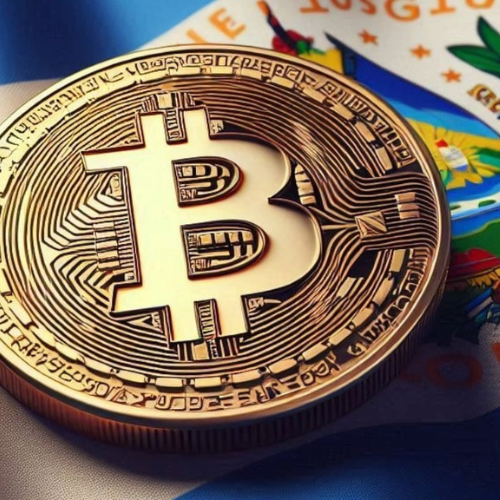El Salvador is taking bold steps in the world of cryptocurrencies. The country, which made Bitcoin legal tender back in 2021, has recently entered into discussions with over 25 countries to form cryptocurrency partnerships. This move is part of a larger strategy to cement El Salvador’s position as a leader in the global digital economy. The country aims to help shape the future of how digital money is used and regulated worldwide.
El Salvador’s Role as a Pioneer in Cryptocurrency
El Salvador’s decision to adopt Bitcoin as legal tender made headlines around the world. This was the first time in history that a country officially recognized a cryptocurrency as a legitimate form of money. The goal was to improve financial access for the unbanked population in El Salvador, allowing citizens to make payments and send money through digital platforms.
Since this landmark decision, the country has become a key player in cryptocurrency geopolitics. El Salvador’s government has been actively working to promote the use of digital currencies, not just at home but globally as well. The country recently signed an agreement with Argentina to share knowledge on blockchain technology and crypto regulations. Argentina, like many other nations, is interested in learning from El Salvador’s experience with cryptocurrency adoption.
El Salvador is also in talks with more than 25 other countries to explore partnerships focused on cryptocurrencies. These countries are looking to work together to establish strong and secure systems for handling digital currencies. They aim to create rules and regulations that will help cryptocurrencies gain wider acceptance and operate safely within the global financial system. El Salvador’s government sees this as an opportunity to help shape the future of cryptocurrency and make sure that it is used in a way that benefits people everywhere.
Cryptocurrency Partnerships and the Role of El Salvador’s National Commission of Digital Assets
El Salvador’s government is heavily involved in overseeing cryptocurrency regulations through the National Commission of Digital Assets (CNAD). This organization ensures that all digital transactions in the country are secure and meet the standards for financial transactions. It also works to create a legal framework that can be adopted by other nations looking to use cryptocurrency.
The country’s push to form partnerships with over 25 countries is not just about spreading Bitcoin. It’s about creating a more structured and organized approach to how cryptocurrencies are managed. By sharing its experience with blockchain technology, El Salvador hopes to make digital transactions easier, safer, and more widely accepted across different countries. This collaboration could lead to standardized cryptocurrency regulations that would help eliminate confusion when people and businesses across borders use digital currencies.
These partnerships aim to address some of the key concerns about cryptocurrency, such as ensuring customer protection, preventing fraud, and making sure that money laundering doesn’t occur. El Salvador believes that by forming alliances with other nations, the crypto space can become more secure, which will encourage people to use it more often for everyday transactions. The partnerships will also focus on strengthening cybersecurity and improving trust in digital assets.
The Economic Impact and Potential Risks
El Salvador’s push to lead the way in cryptocurrency adoption is not only about technology but also about improving the economy. The country is hoping that these cryptocurrency initiatives will bring in investment from around the world, attract more tourists, and provide new opportunities for people who don’t have access to traditional banking.
Is Bhutan Following the Path of El Salvador: A Digital Wealth Odyssey?
This is particularly important in a country like El Salvador, where a large portion of the population lacks access to basic financial services. Cryptocurrency has the potential to help bridge this gap, providing people with the ability to send and receive money easily, without relying on banks or traditional financial institutions. This could help the country’s economy grow and provide opportunities for people who are otherwise excluded from the financial system.
However, this initiative comes with risks. Cryptocurrencies are known for their volatility, meaning their value can change dramatically in a very short time. This creates uncertainty for people and businesses that use them. If a large portion of El Salvador’s economy depends on digital currencies, it could lead to serious financial instability if the value of Bitcoin or other cryptocurrencies drops suddenly.
Additionally, there are concerns about the environmental impact of cryptocurrency mining, which requires significant amounts of energy. Since El Salvador has been mining Bitcoin using renewable energy, it aims to minimize the environmental impact, but the issue remains a concern for many people around the world. If the country continues to rely heavily on cryptocurrency, it might face criticism from environmental groups or other countries concerned about the energy consumption associated with digital currencies.
The push for cryptocurrency regulations also presents challenges. If the country’s regulatory framework clashes with the policies of other countries, it could lead to tensions in international relations. Poorly executed regulations could lead to confusion, potentially affecting the stability of the cryptocurrency market. Despite these challenges, El Salvador remains committed to its goal of becoming a global leader in the cryptocurrency space.


